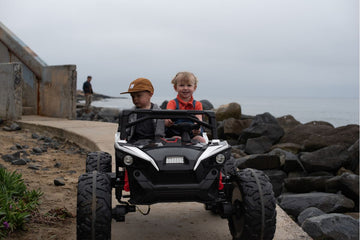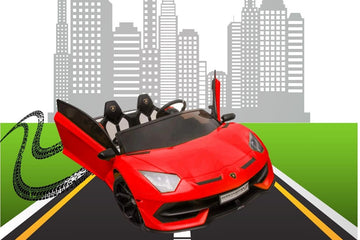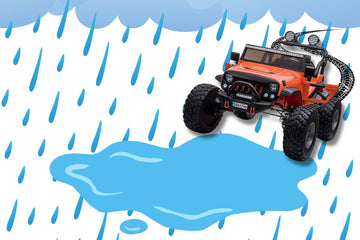In today's fast-paced world, where technology is advancing at an unprecedented rate, it's crucial to find innovative and engaging ways to educate children. One such method is through educational playtime using remote control ride-on cars. These miniature vehicles not only provide endless hours of fun but also foster skill development in children. In this article, we'll explore the benefits of incorporating remote control ride-on cars into a child's playtime routine.
Featuring our Lamborghini Aventador Drift Car
The Evolution of Playtime
From Traditional Toys to Tech-Savvy Tools
In the past, playtime was associated with traditional toys like building blocks, dolls, and board games. However, with the advent of technology, playtime has evolved to include more interactive and engaging options. Remote control ride-on cars represent a bridge between traditional play and modern technology, offering a blend of excitement and learning.
Learning Through Fun
Developing Motor Skills and Coordination
Remote control ride-on cars require children to manipulate the steering wheel, accelerator, and brakes, promoting the development of fine motor skills and hand-eye coordination. As they navigate the car around obstacles, they learn to judge distances and angles, enhancing their spatial awareness.
Understanding Cause and Effect
Operating a remote control car teaches children about cause and effect relationships. They discover that pressing the accelerator makes the car move forward, while applying the brakes brings it to a stop. This fundamental understanding of cause and effect lays the groundwork for more complex learning later on.
Featuring our XXL UTV
Cognitive Development
Enhancing Problem-Solving Abilities
While maneuvering the remote control car, children encounter various obstacles that require them to think critically and solve problems in real-time. They learn to strategize and make quick decisions to navigate around objects, promoting cognitive flexibility and analytical thinking.
Introducing Basic Concepts
Remote control ride-on cars can be utilized to introduce basic concepts such as directionality, spatial orientation, and basic physics. Concepts that might seem abstract in a traditional classroom setting become tangible and experiential through hands-on play.
Featuring our All Wheel Drive Buggy
Social and Emotional Growth
Encouraging Imaginative Play
Children often imbue their remote control cars with personalities and roles, engaging in imaginative play. This form of play helps them explore emotions, develop creativity, and learn about social interactions as they assign roles to the car and themselves.
Building Confidence
Mastering the operation of a remote control ride-on car instills a sense of accomplishment in children. As they overcome challenges and improve their skills, their self-confidence grows, setting a positive foundation for facing new tasks and experiences.
Featuring our Dune Racer
Inclusive Learning
Catering to Diverse Learning Styles
Educational playtime with remote control ride-on cars caters to various learning styles. Visual learners observe the car's movements, auditory learners listen to the sounds it makes, and kinesthetic learners actively manipulate the controls. This inclusive approach ensures effective learning for all children.
Conclusion
Educational playtime with remote control ride-on cars offers a dynamic and holistic approach to skill development in children. Through the fusion of play and education, these miniature vehicles contribute to the enhancement of motor skills, cognitive abilities, emotional growth, and inclusive learning. As we embrace the possibilities of technology-enhanced play, we empower our children to thrive in a rapidly changing world.









